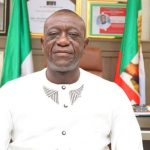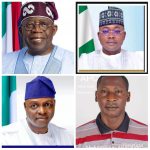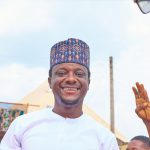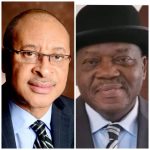Kwankwaso’s Imminent Defection to APC: A Political Earthquake Brewing in Kano and Beyond
By: Bala Salihu Dawakin Kudu
Norther Bureau Chief
April 24, 2025
As Nigeria inches closer to another electoral season, political alignments and realignments are already gaining momentum. One of the most significant moves currently generating intense discussion across the political landscape is the possible defection of Engr. Dr. Rabiu Musa Kwankwaso—former Governor of Kano State, ex-Senator for Kano Central, and the 2023 presidential candidate of the New Nigeria Peoples Party (NNPP)—to the ruling All Progressives Congress (APC).
Insider reports and political undercurrents strongly indicate that Kwankwaso is deep in consultations and high-level negotiations that may culminate in his formal return to the APC fold—a party he helped build, then famously exited under acrimonious circumstances.
Kwankwaso’s relationship with the APC has always been a complicated one. He was a foundational member of the party in 2013 during the grand coalition that birthed it, before his dramatic return to the PDP in 2018, and later forming an alliance with the NNPP in 2022. His moves have consistently shifted political balances, especially in the North-West.
However, his return to the APC is not without risks. The wounds left by his departure in 2018 have not fully healed, especially in Kano State where his political rivalry with his former deputy-turned-foe, Governor Abdullahi Ganduje, remains one of the most bitterly fought in Nigerian politics.
Within the Kano State chapter of the APC, news of Kwankwaso’s potential return has been met with fierce resistance. The mere possibility has reopened old divisions, as party loyalists who held the line during turbulent times feel threatened by the re-entry of a powerful and independent political force.
Kwankwaso commands a dedicated political movement—the Kwankwasiyya—known for its discipline, loyalty, and massive grassroots support. For many APC insiders, bringing in Kwankwaso is akin to welcoming a rival army into their camp. The fear is not just about competition but total displacement. Local leaders worry that the Kwankwasiyya structure could quickly dominate party machinery, dictate candidate selection, and alter internal dynamics irreversibly.
Nationally, some APC strategists view Kwankwaso’s return as a masterstroke—a way to consolidate northern votes, especially with the NNPP carving out a substantial chunk of Kano’s political base in the last elections. However, this thinking overlooks the ideological and structural differences between Kwankwaso’s movement and the current APC establishment.
There’s also skepticism about Kwankwaso’s consistency. His frequent party switching—from PDP to APC, then back to PDP, and later NNPP—raises questions about loyalty and long-term commitment. Many see his move as less about ideology and more about positioning for another presidential run.
If Kwankwaso defects, the APC faces a complicated dilemma. On one hand, his inclusion could bring in a formidable voting bloc; on the other, it may alienate longstanding party loyalists who feel marginalized by his sudden reappearance. In a worst-case scenario, internal discontent could lead to defections, weakening the party’s hold not only in Kano but also in the broader North-West region.
Already, whispers abound of aggrieved APC members plotting their exit should Kwankwaso and his followers be accommodated without a clearly defined and equitable power-sharing arrangement. The danger is clear: a fractured APC in Kano could pave the way for a PDP resurgence in 2027.
In simple political arithmetic, if the Kwankwasiyya bloc joins APC and retains its current strength—holding state assembly seats, federal legislators, and possibly the guber ticket—the original APC structure may be entirely displaced. Loyalists who feel betrayed could decamp, fragmenting the base and handing the opposition an advantage.
Dr. Kwankwaso’s imminent defection to APC may be touted as a strategic move by national power brokers, but the grassroots reality in Kano tells a different story. His entry may trigger more friction than unity, especially if unresolved rivalries, power tussles, and ideological conflicts are left unattended.
Unless carefully managed, what seems like a political masterstroke could turn into a miscalculation that shakes the APC to its very foundation. The next few weeks will be critical, not just for Kwankwaso and the APC, but for the future political direction of Kano State and the larger North-West region.










